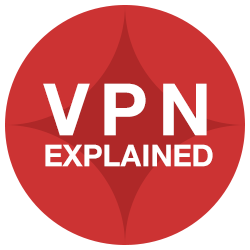
In an increasingly connected tech environment where the internet has pretty much transformed to be the backbone of every modern enterprise, data security is mounting up to be the most critical issue. The criticality of the matter surges even more when almost every imperative work process depends on secure data transmission.
Internet, as we know it today, was developed around an idea that data packets (information) need to be delivered quickly and completely. The concern for data security was introduced very recently when unethical data hijacking became increasingly common.
The best resort in such a situation is to carry the entire networking by means of a virtual private network connection. Today, the use of the virtual private network is gaining great momentum in the enterprise space because it provides a secure channel to the user to efficiently carry data transactions. It creates a safe and encrypted channel even on an otherwise insecure network like the internet.
Why do we need VPN
- Mask IP addresses/location
- Change IP address
- Encrypt data transmission
- Data Protection over insecure channels
- Get secure access to blocked or network restricted websites
Corporate Importance
VPN was initially developed to secure remote location access and easily operate from an offsite location. Resource sharing becomes far more conceivable and easy with VPN, as it provides a secure and trusted gateway for users to access the network. With an active VPN, secure tunnels are set up for data transfer and various authentication mediums are used to allow access.
VPN encapsulates or wraps every data packet into an encrypted form, which even if intercepted cannot be decrypted. Leaving aside a few of its limitations, VPNs are the best solution for securing data streams across a wide-reaching network.

Important Protocols in VPN
Among the plenty of available VPN protocols, here are few of the most common ones:
PPTP – Probably the most ancient protocol in the list, PPTP is an efficient VPN protocol with great compatibility across every major operating system. It heads a point-to-point connection over the GRE protocol. It is secure but definitely not the safest.
L2TP/IPsec – As the name defines, this protocol is actuated by implementing two protocols together keeping the best features of them. It’s an impressively secure web protocol and surely does the work right.
Open VPN – It is an SSL-based VPN service which is widely popular among professionals. SSL is effectively a great encryption protocol which can even run on a single UDP or TCP port.






